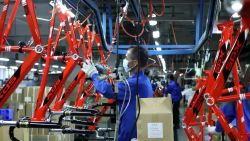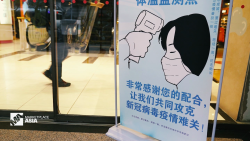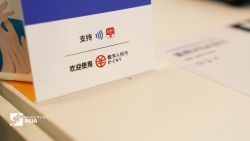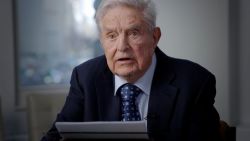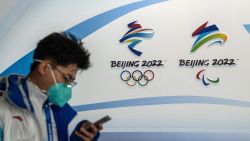Huawei founder Ren Zhengfei is trying to look on the bright side.
The Chinese billionaire is facing a US campaign against his tech company’s global operations, and his daughter is fighting extradition to the United States where she faces criminal charges.
But Ren, who previously served in the Chinese military, relishes a good fight.
In an interview with CNN on Wednesday, the Huawei CEO claimed the US government’s “attack and suppression” has delivered a much needed wake-up call to the company’s employees.
The United States has been urging allies to ban the use of Huawei equipment in their 5G networks, saying Beijing could use the technology to spy on other nations. Huawei has repeatedly denied that any of its products pose a security risk.
Huawei is a key player in 5G technology. It is the world’s largest telecommunications equipment maker and a leading smartphone brand that competes with the likes of Samsung and Apple (AAPL).
But after years of success, “our teams are getting lazy, corrupt and weak,” Ren said.
“Since the United States’ attack and suppression of us, everyone has really come together and wants to make our products better,” he said.
Ren, 74, survived China’s Cultural Revolution, a time when disastrous policies led to massive food shortages around the country. His father was labeled as a capitalist sympathizer, which made it difficult for Ren to find work and move up the ranks in the army.
After he founded Huawei in 1987, the company faced criticism in China for being pro-capitalist, and was labeled as pro-communist in the West, he said.
‘Heroes always face a lot of suffering’
Ren sees adversity as healthy and says all his employees, including his daughter Meng Wanzhou, could toughen up a bit.
Meng, Huawei’s chief financial officer, was arrested in December in Canada and is fighting extradition to the United States, where she faces charges of bank fraud and violating Iran sanctions. Meng and Huawei deny the charges.
“Heroes always face a lot of suffering. How can you get tough and develop thick skin, if you’ve never been wounded and scarred?” Ren told CNN.
“This suffering is perhaps good training for her will power. It might not be all bad,” he said. He acknowledged it’s not ideal for Meng’s career, though. An executive being prevented from doing their jobfor a long period of time is “a real shame,” he pointed out.
Ren has two other children, a son who works at a Huawei subsidiary, and another daughter who is studying at Harvard.
He admits he neglected his kids when they were growing up, saying he was too busy fighting for Huawei’s survival. To make things worse, he said, his overly practical personality didn’t exactly make him a fun dad.
A few days ago, Ren’s wife reminded him of a past transgression when he refused to buy a cheap spinning toy for their daughter.
“She still complains about that incident, which happened when our daughter was still small,” he said. “I told her I can buy it for her now, but she doesn’t need it anymore.”
Letting in Google ‘would benefit China’
Despite the US campaign against his company, Ren is full of admiration for the United States as a leader in business and technology.
He said he hopes the pressure on Huawei won’t push his employees toward “narrow-minded nationalism” or drive them to become “anti-American.”
Ren himself is under scrutiny in the United States.
According to court documents, US prosecutors allege that he lied to FBI agents during an interview in 2007, when he said Huawei was in compliance with US sanctions on Iran.
Asked on Wednesday if he would be nervous about traveling to the United States, Ren said he had no need to visit the country, which is only a small market for Huawei products. But he joked that if he ever ended up in a prison there, he would use the time to write a history book about how the United States became the world’s most powerful country.
Ren also criticized his own country’s restrictions on top US tech companies.
“I’ve always advocated letting Google, Amazon and such companies enter China,” he said. “I think that would benefit China.”
Tech companies like Google (GOOGL), Facebook (FB) and Twitter (TWTR) have been largely locked out of the Chinese market for years by the government’s censorship apparatus.
Amazon (AMZN) operates with fewer restrictions, but it was late to the game and faces fierce competition from China-based rivals Alibaba (BABA) and JD.com (JD).
Don’t hold grudges
Ren traveled to the United States in the early 90s, a time when China still lagged far behind developed nations and was starting to slowly open up parts of its economy.
“When I visited … I said that the United States’ prosperity and wealth didn’t come from plunder, they got it from high technology. I said this in 1992,” he said.
In the decades since, China has produced its own domestic tech champions like Huawei, Alibaba and Tencent (TCEHY). The country now has ambitious plans to become a global tech powerhouse, fueling worries in Washington that the technologies of the future will be controlled by China’s Communist government.
Last month, US President Donald Trump tweeted that he wants “5G and even 6G technology” in the United States as soon as possible, adding that American companies need to step up their efforts or get left behind.
Even though Huawei has for years been largely shut out of the market to supply network equipment for major US wireless carriers, Ren said his company stands ready to help if the American government changes its stance.
“We are very capable, we can collaborate on 6G to do even better work,” he said. “I won’t hold grudges.”
Matt Rivers, Yuli Yang and Steven Jiang contributed to this report.




